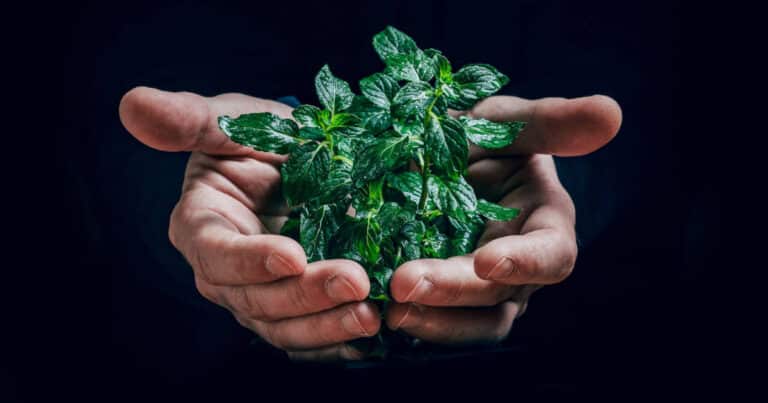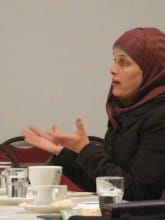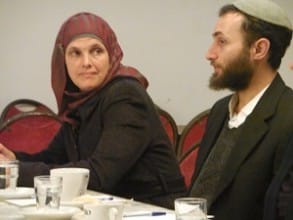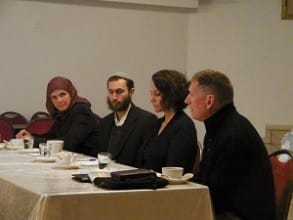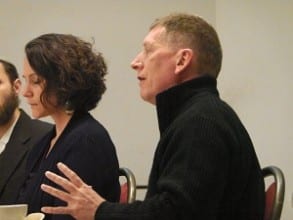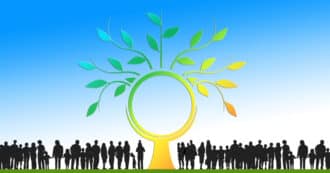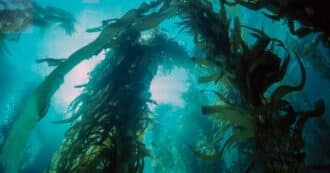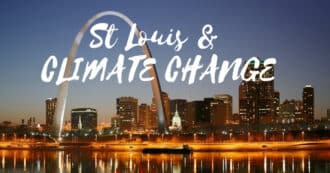By Joy Auciello for the Interfaith Center for Sustainable Development
Since 2011, the Interfaith Center for Sustainable Development (ICSD) has organized over 15 interfaith panels, which have reached about 1,000 people. On February 23, 2015 ICSD hosted an interfaith panel for a group of 40 Dutch students on a Holy Land church tour at the Commodore Hotel in East Jerusalem.
The three panelists were Yasmin Barhum, landscape architect and facilitator at ‘Living in the Levant’, which aims to present Islam and the Arab population of Israel to non-Muslims through tours in the village of Ein Rafa and visits at the local mosque; Rev. Russell McDougall, Rector of the Tantur Ecumenical Institute in Jerusalem; and Rabbi Yonatan Neril, Director of ICSD.
Rachel Winner of ICSD moderated the panel asked about the panelists’ intercultural work. Ms. Barhum lives in a small Arab village in Israel, and stated, “Where we live, as soon as we step out of our village, we’re in a completely different country. The language changes, the religion changes. Our experience living here in a minority community is that in every stage in which we leave our village we are encountering other [cultures]. We have had to absorb a lot of those things into who we are.”
Rev. McDougalll reflected on his pastoral experience in Kenya and Uganda where he had to adjust to a very different way of life. He repeated the sage advice of one of his colleagues there: “Let your first instinct be to realize that there is a wisdom to the way people have ordered their lives.”
In order to express how these issues interact with everyday life in Israel, Rabbi Neril said that he finds that language is a huge way of crossing the cultural barriers and that everyday cross-cultural interactions are very important in bringing people together. “There is a big variation in the amount of interaction people have with people from a different faith. With some people, there is almost no interaction. I think that is one of the things that perpetuates the conflict.”
The discussion also related to religion and the environment. Rev. McDougall reminded us of the joint statement of Pope Francis and Patriarch Bartholomew in May 2014: “It is our profound conviction that the future of the human family depends also on how we safeguard both prudently and compassionately with justice and fairness the gift of creation that our creator has entrusted to us. Therefore, we acknowledge in repentance the wrongful mistreatment of our planet which is tantamount to sin in the eyes of God.”
Rabbi Neril related how “environmental issues are one thing that can really unite people in this land. For people of faith, there is actually more that unites us than separates us.”
Several questions from the audience closed the discussion. These included, “This country, especially Jerusalem, is claimed by so many people. Is coexistence, for you, the ultimate goal?” “As just one person in the world, what can I do for coming generations?” and “How much of this can we (an Israeli or Palestinian) bring home to our communities?”
Ms. Barhum ended the panel by saying, “It’s about being open to receiving the Other and also to venturing into a place you feel less comfortable in. On the level of building trust, you don’t have to agree in order to work here, you have to be able to work with respect. At every opportunity of contact that you have, leave it in a positive situation.” The group tour was organized by Pastor Marten de Vries of Bedum, the Netherlands and by Keshet Educational Journeys.
* Featured image source

